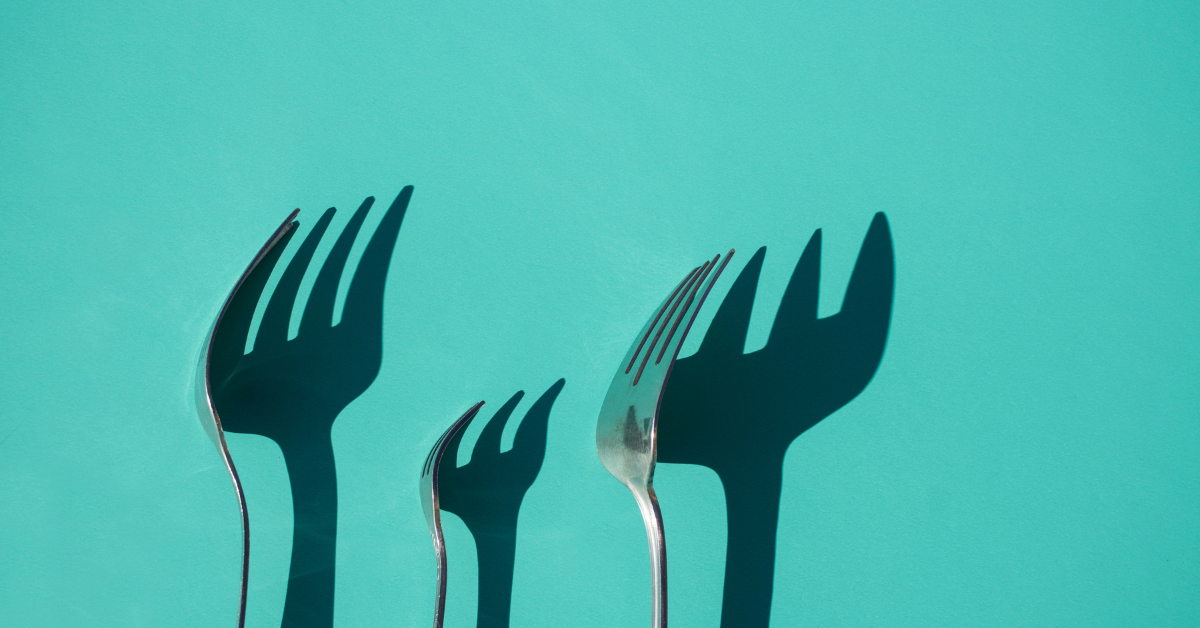By Evelyn Tribole, MS, RD
Unbelievable. Disturbing. The April issue of Vogue magazine prominently features a cover story about a mother who puts her 7-year old child on a weight loss diet, triggered by the pediatrician classifying her as obese. The mother acknowledges her own disordered eating issues, with 30 years of dieting, with self-described “dabbling with the occasional laxative or emetic”. She even admits, “I like that the word [obesity], carries a scary diagnostic tone.” And to fight this scary battle, the mother rigidly policed every morsel of food that enters her daughter’s mouth. For example:
- When discovering that her daughter ate a high calorie lunch at school, the mother “reproachfully denies her dinner”.
- In the case of social settings, “I often derided her for not refusing an inappropriate snack”
- “I dressed down the Starbucks barista when he professed ignorance…” (of the caloric content of a kids hot chocolate).
Let me be clear, my criticism is aimed at Vogue magazine’s irresponsibility of publishing such an article. (This is also why I am not using the names of the mother and daughter provided in the story). Not a single expert or health authority was quoted as cautionary source, even though the mother expresses her doubt, worrying at one point, that she might be stunting her daughter’s growth or metabolism. The research is quite clear on this matter:
- A large 3-year study on nearly 2,000 adolescents found that dieting is the most important predictor of new eating disorders (Patton et al 1999).
- Eating disorders are deadly.
Furthermore, dieting appears to be causally linked to both obesity and eating disorders (Haines & Neumark-Sztainer 2006). Dieting is associated with increased food preoccupation, binge eating, and eating in the absence of hunger. A recent study on 2,000 sets of twins ages 16-25, found that dieting itself, independent of genetics, is significantly associated with accelerated weight gain. Furthermore, the risk of becoming overweight increased with each dieting episode (Pietilaineet al, 2011). Similar results were found in a study on nearly 17,000 kids school-age kids, which found that dieting, itself, was a significant predictor of weight gain (Field et al 2003). The risk of binge eating increased 7-12-fold in these young dieters.
It’s beyond ironic that a fashion magazine would publish a child’s weight loss story in the name of health, when in actuality, they describe how to increase the risk of getting an eating disorder—for which there is no doubt a direct cause of death. Vogue’s ‘war on obesity’ as described by a mother-in-the-trenches, has created a dieting causality for a child, whose photo and story is on public display. The concluding paragraph, the mother reports, “When I ask her if she likes how she looks now, if she’s proud of what she’s accomplished, she says yes.”
With the ancient practice of Chinese foot binding, women really believed that if they didn’t raise daughters with tiny feet, they wouldn’t marry into the right family and they would have less status. Many of those girls were in extreme pain from the binding process, and 10% of them died. Today, we have modern day version—pursuit of weight loss, no matter the age, no matter the futility, no matter the danger.
Outraged? Want to take action? Let Vogue magazine know how you feel about this article:
- Post on their Facebook Page http://www.facebook.com/VogueU
- Email Vogue: http://www.vogue.com/contact/
- Write a letter to their editor, Anna Wintour: VOGUE Magazine 4 Times Square, New York, NY 10036
Field, A,E. et al (2003). Relation Between Dieting and Weight Change Among Preadolescents and Adolescents. Pediatrics,112:900-906. [Free Full Text http://pediatrics.aappublications.org/content/112/4/900.long ]
Haines, J. & Neumark-Sztainer D (2006). Prevention of obesity and eating disorders: a consideration of shared risk factors. Health Education Research, 21(6):770–782. [Free Full Text http://her.oxfordjournals.org/content/21/6/770.long ]
Miles, N. UCLA Asia Insitute. http://www.international.ucla.edu/shenzhen/2002ncta/miles/index.htm
Neumark-Sztainer, D. et al (2006). Obesity, disordered eating, and eating disorders in a longitudinal study of adolescents: how do dieters fare five years later? J Am Diet Assoc,106(4):559-568.
Patton, G. C., et al. (1999). Onset of adolescent eating disorders: population based cohort study over 3 years. British Medical Journal, 318:765-768. [Free Full Text http://www.bmj.com/content/318/7186/765?view=long&pmid=10082698 ].
Pietiläinen, K.H. et al. (2011). Does dieting make you fat? A twin study. International Journal of Obesity, | doi:10.1038/ijo.2011.160
Miles, N. UCLA Asia Insitute. http://www.international.ucla.edu/shenzhen/2002ncta/miles/index.htm
Copyright © 2012 by Evelyn Tribole, MS, RD Published at www.IntuitiveEating.org
•Rights to Reproduce: You may reproduce this post, as long as you leave it unchanged, you don’t charge for it, link to it, and you include the entire copyright statement. Please let us know you have used it by sending a website link or an electronic copy to Etribole at gmail dot com.
DISCLAIMER: The information is intended to inform readers and is not intended to replace specific advice from a health care professional.


